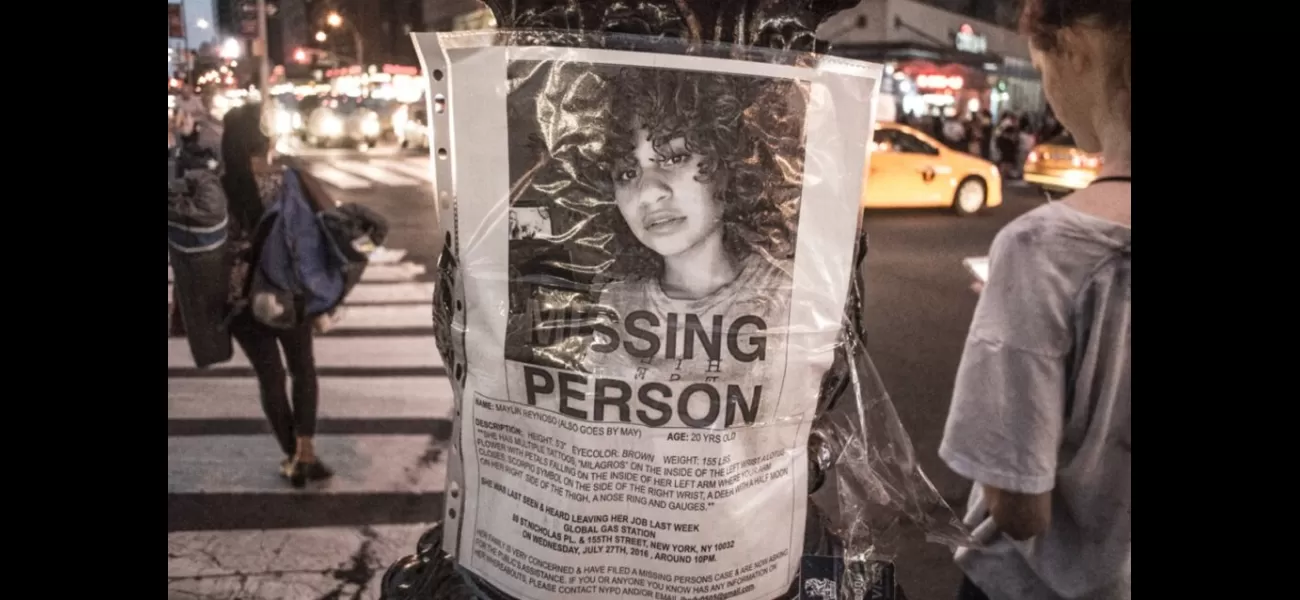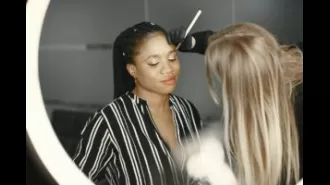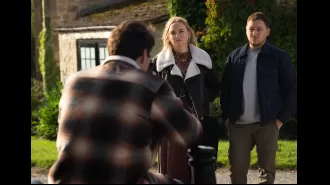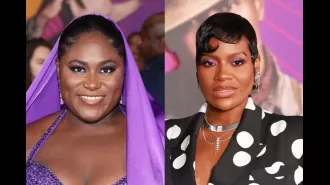Foundation working to bring attention to often forgotten missing persons cases acknowledges there is still much to be done.
The Black and Missing Foundation recognizes achievements, but emphasizes the need for continued effort.
June 21st 2024.

The founders of the Black and Missing Foundation are proud of the progress they have made since establishing their organization. However, they are also keenly aware that there is still much work to be done in order to bring attention to cases that are often overlooked in our society.
Natalie Wilson and Derrica Wilson have dedicated the last 16 years to amplifying missing persons cases that often go unnoticed by mainstream media. Their journey began in 2008, when they were inspired to create the Black and Missing Foundation after the disappearance of Tamika Huston. In an interview with kidnapping survivor Elizabeth Smart on a recent episode of "Banfield", Natalie shared, "We started raising awareness about the alarming rate at which people of color are disappearing all over the country. Unfortunately, these cases were not receiving the same media coverage, law enforcement resources, or community support as others."
It's disheartening to see that for decades, missing white women have been given extensive media attention while cases involving women of color are often overlooked. Some of the cases that have received widespread coverage include Gabrielle Petito, Lacy Peterson, Chandra Levy, and Natalee Holloway, among others. However, only a handful of missing Black women, such as Huston and LaToyia Figueroa, have been given the same level of attention.
This stark contrast in media coverage has been identified by social scientists as the "missing white women syndrome". While the Black and Missing Foundation strives to provide equal opportunities for all missing persons, Natalie acknowledges that they still have a long way to go. Smart, who was kidnapped at the age of 14 and was missing for nine months before being found, commends the Wilsons for their efforts. She believes that if all missing person cases received the same amount of attention, there would be fewer children and adults still missing.
Derrica Wilson explains that part of their work at the Black and Missing Foundation involves raising awareness and connecting law enforcement with resources. She emphasizes the importance of media attention in pressuring authorities to dedicate more resources to these cases. "It takes all of us," she says.
In January, the Wilsons spoke about the desensitization of the public towards missing persons of color. They believe that a large part of this issue stems from the way minority communities are often associated with criminal activity and poverty. "We have been fighting an uphill battle," says Natalie, referring to the challenges they face in gaining media coverage for these cases. "While there has been some improvement, we are still met with silence when we reach out to media outlets. We want our missing persons to be well-known names too."
In related news, Vice President Kamala Harris and rapper Quavo recently joined forces for a summit addressing gun violence in Atlanta. This is just one example of how individuals and organizations are working together to bring attention to important social issues and create positive change in our communities.
Natalie Wilson and Derrica Wilson have dedicated the last 16 years to amplifying missing persons cases that often go unnoticed by mainstream media. Their journey began in 2008, when they were inspired to create the Black and Missing Foundation after the disappearance of Tamika Huston. In an interview with kidnapping survivor Elizabeth Smart on a recent episode of "Banfield", Natalie shared, "We started raising awareness about the alarming rate at which people of color are disappearing all over the country. Unfortunately, these cases were not receiving the same media coverage, law enforcement resources, or community support as others."
It's disheartening to see that for decades, missing white women have been given extensive media attention while cases involving women of color are often overlooked. Some of the cases that have received widespread coverage include Gabrielle Petito, Lacy Peterson, Chandra Levy, and Natalee Holloway, among others. However, only a handful of missing Black women, such as Huston and LaToyia Figueroa, have been given the same level of attention.
This stark contrast in media coverage has been identified by social scientists as the "missing white women syndrome". While the Black and Missing Foundation strives to provide equal opportunities for all missing persons, Natalie acknowledges that they still have a long way to go. Smart, who was kidnapped at the age of 14 and was missing for nine months before being found, commends the Wilsons for their efforts. She believes that if all missing person cases received the same amount of attention, there would be fewer children and adults still missing.
Derrica Wilson explains that part of their work at the Black and Missing Foundation involves raising awareness and connecting law enforcement with resources. She emphasizes the importance of media attention in pressuring authorities to dedicate more resources to these cases. "It takes all of us," she says.
In January, the Wilsons spoke about the desensitization of the public towards missing persons of color. They believe that a large part of this issue stems from the way minority communities are often associated with criminal activity and poverty. "We have been fighting an uphill battle," says Natalie, referring to the challenges they face in gaining media coverage for these cases. "While there has been some improvement, we are still met with silence when we reach out to media outlets. We want our missing persons to be well-known names too."
In related news, Vice President Kamala Harris and rapper Quavo recently joined forces for a summit addressing gun violence in Atlanta. This is just one example of how individuals and organizations are working together to bring attention to important social issues and create positive change in our communities.
[This article has been trending online recently and has been generated with AI. Your feed is customized.]
[Generative AI is experimental.]
0
0
Submit Comment





